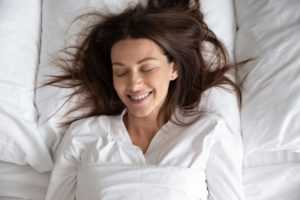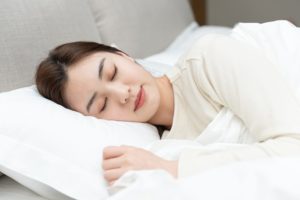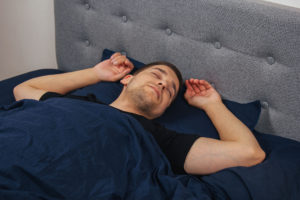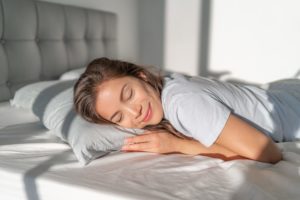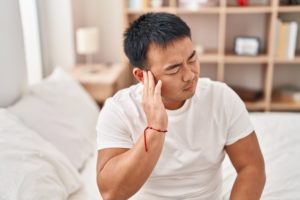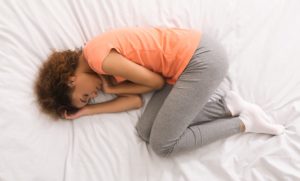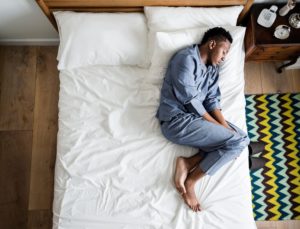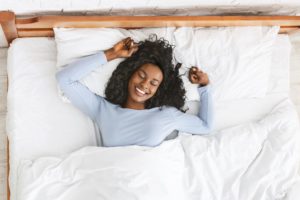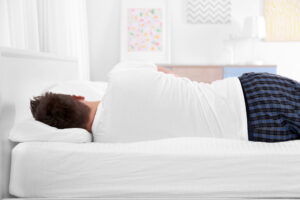How to Choose the Best Sleeping Position for Neck Pain
- The best sleeping positions for neck pain are side sleeping and back sleeping.
- Avoid stomach sleeping, which can strain your neck.
- Daytime posture, stress, and physical activity can also build up tension in the neck.
- Use a supportive pillow that keeps your neck aligned with your spine.
Pain can make it difficult to fall and stay asleep , and neck pain is no exception. Nearly 10% of people have neck pain and approximately 70% of people with chronic neck pain experience poor quality sleep. Research shows that certain sleeping positions can trigger neck pain and contribute to lower sleep quality.
Quality sleep is essential for a healthy body and mind. Physical and mental health, immune function, and thinking are all impacted by a lack of sleep. To experience the full benefits of sleep, experts recommend that most adults get at least seven hours of sleep each night.
By sleeping in a supported position, people with neck pain may find relief and get the quality sleep they need. We highlight the best sleeping positions for neck pain, as well as potential causes of nighttime discomfort and tips for getting a better night’s rest.
Our Top Product Picks
-
Best Pillow for Side Sleepers – Saatva Latex Pillow
View Details
Swipe for more
Best Mattress for Side Sleepers
Helix Midnight Luxe
9.7 /10
Test Lab Score
27% off sitewide + 2 free Dream Pillows with a mattress purchase. Code: SF27
27% off sitewide + 2 free Dream Pillows with a mattress purchase. Code: SF27
Designed specifically for side sleepers, the Helix Midnight Luxe offers deep cushioning and cradling with plush foam and multi-zone coils.
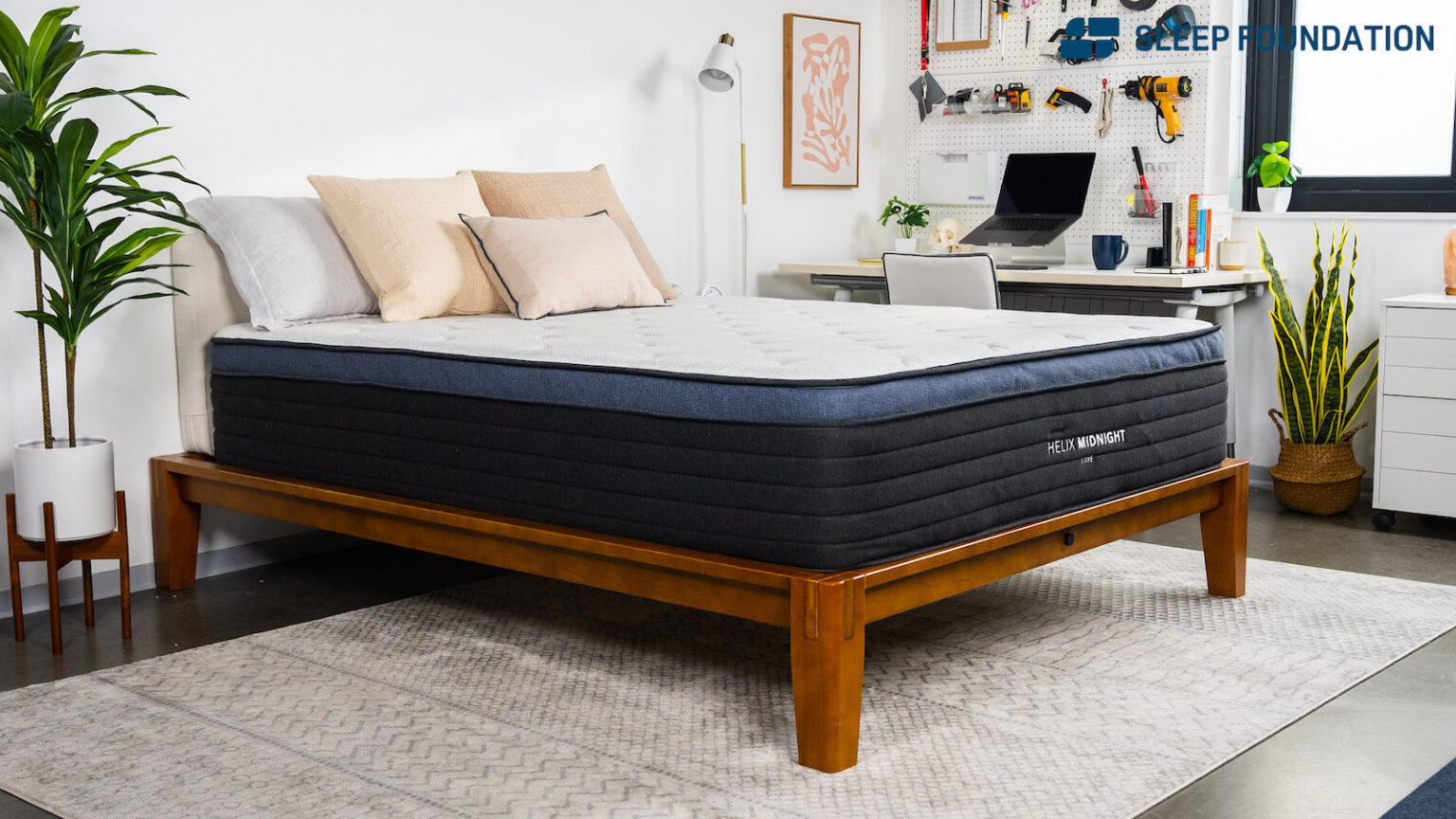
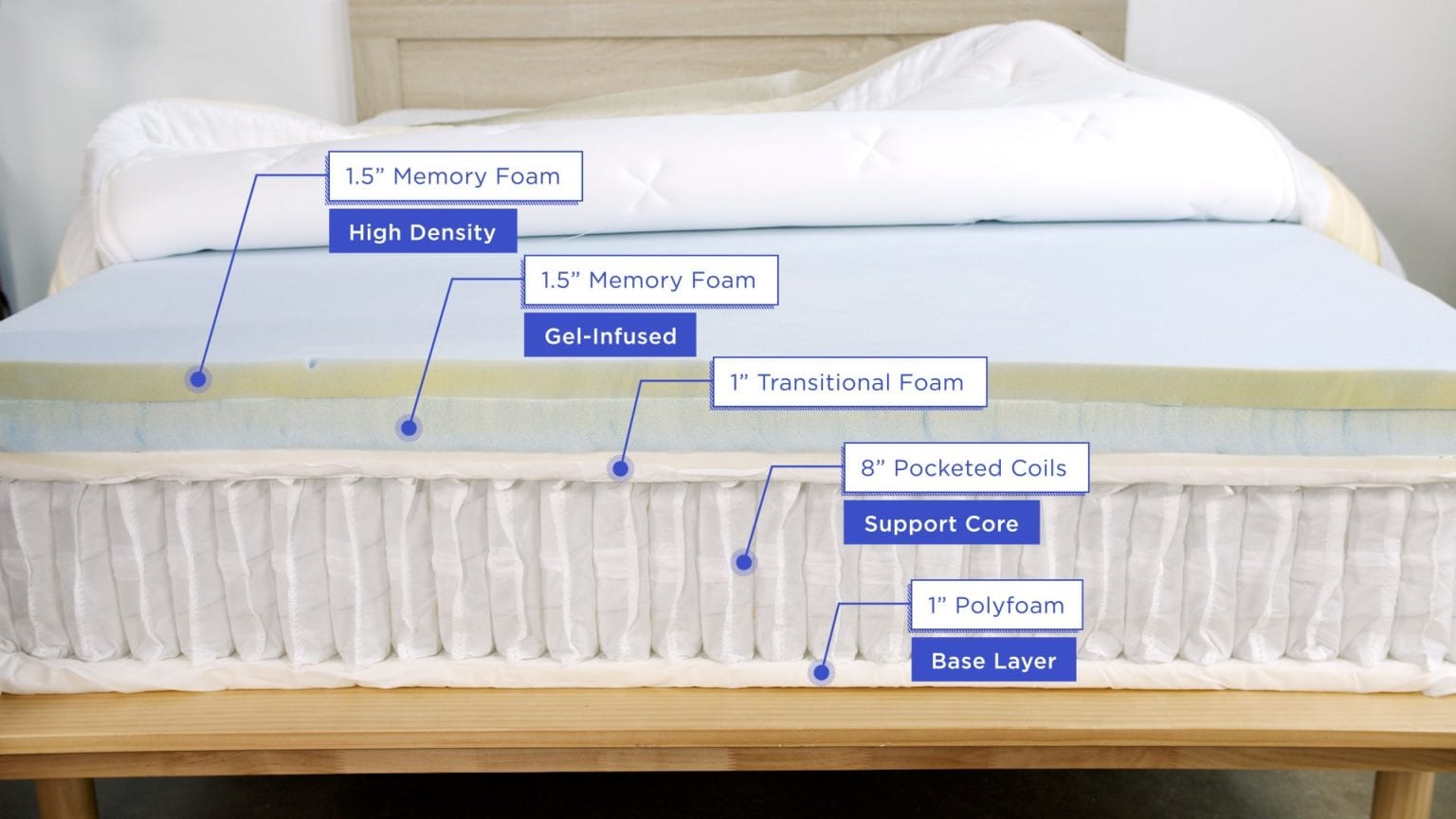
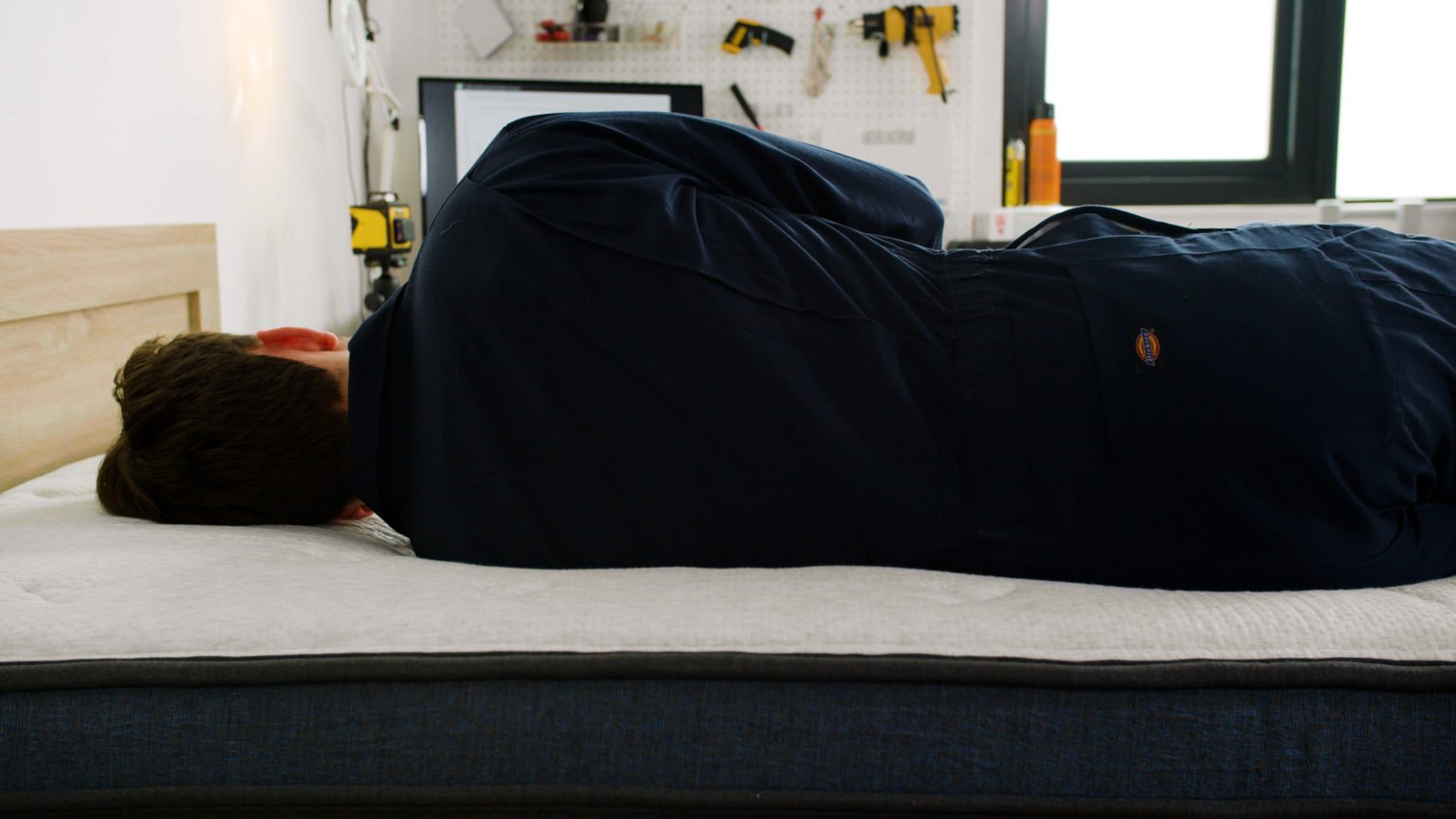
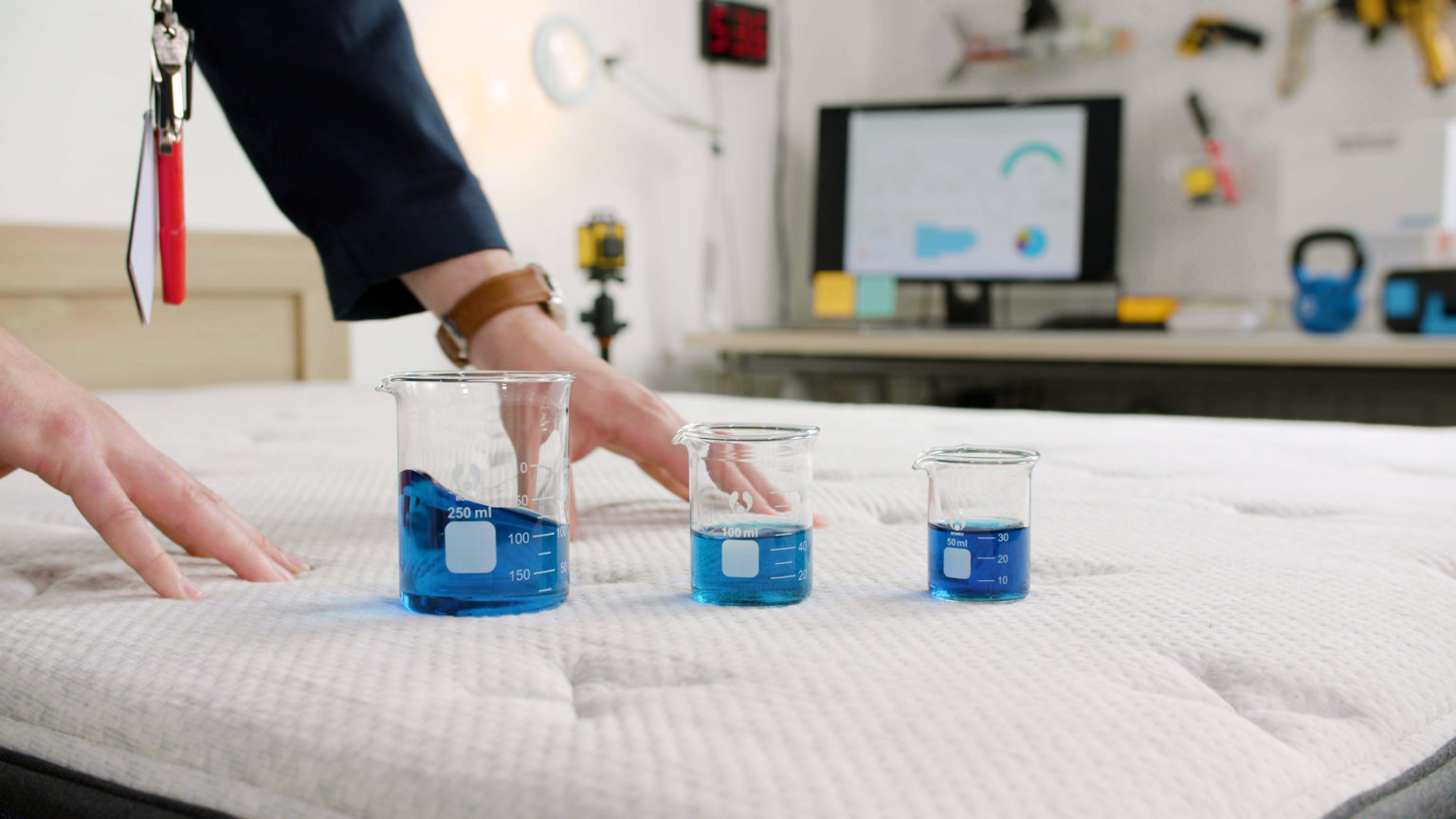
Price
$1,899
Mattress Type
Hybrid
Firmness Options
Medium Firm (6)
Trial Period
100 nights (30-night requirement)
Our Verdict
Who it’s best for: The Helix Midnight is a medium firm (6) hybrid designed for side sleepers between 130 and 230 pounds. However, our hands-on tests show the mattress should provide enough cushioning, pressure relief, and support for side sleepers across different weight groups.
Feel: Adaptive foam layers encased in a Euro-top give the Midnight Luxe a plush surface feel. Dense transitional foam and pocketed coils divided into different support zones push back against weight in the heavier areas of your body, so excessive sinkage shouldn’t be an issue for people who weigh up to 230 pounds.
What it’s made of: The Midnight Luxe’s comfort system contains three layers, beginning with two layers of memory foam that mold to your body’s unique curves and contours. A third layer of dense transitional polyfoam provides additional cushioning while keeping your body on an even plane. The support core consists of multi-zone pocketed coils and high-density base foam, and the cover is made from breathable, moisture-wicking Tencel fabric.
What we don’t like: Side sleepers over 230 pounds may need a firmer mattress to prevent their bodies from sinking too deeply into their sleep surface. Our testers also noticed some strong off-gassing odor after unboxing the Midnight Luxe — these smells eventually dissipate, but the first few nights may be unpleasant.
Scoring & Reviews
The following ratings show how suitable this mattress is for different sleeping positions and sleeper weights. These scores are determined by how well the mattress supports and relieves pressure for each sleeper type.
We performed a meta-analysis on 5876 validated customer reviews of the Helix Midnight Luxe. This is what people who bought the mattress had to say:- Comfort and Support: Many reviewers express that the mattress provides exceptional comfort and support, especially noting its ability to alleviate back, hip, and shoulder pain.
- Sleep Quality Improvement: The mattress is frequently described as transformative for those who previously struggled with sleep disturbances.
- Temperature Regulation: Positive remarks are made about the cooling properties of the mattress. Users find the cooling aspect effective, helping to maintain a comfortable sleeping temperature throughout the night.
- Customer Service: Experiences with customer service are predominantly positive, with buyers appreciating the responsive and helpful nature of the support team. Issues are resolved satisfactorily, contributing to a positive overall customer experience.
- Durability Concerns: A few reviewers express concerns about the mattress showing signs of wear or sagging prematurely. These concerns are not widespread but are significant enough to be noted by potential buyers.
- Mixed Reviews on Firmness: While many find the mattress perfectly balanced, there are mixed reviews regarding its firmness. Some users find it softer than expected given its firmness level. While the ‘medium firm’ rating is appropriate by our measurements, the bed does have a ‘cushy’ foam feel that makes for a fairly soft surface feel.
Best Pillow for Side Sleepers
Saatva Latex Pillow
9.6 /10
Test Lab Score
Use this link for the most current discount.
Use this link for the most current discount.
A high-profile and adjustable design make the Saatva Latex Pillow a good match for side sleepers, especially those who aren’t sure how much loft they need to sleep comfortably.
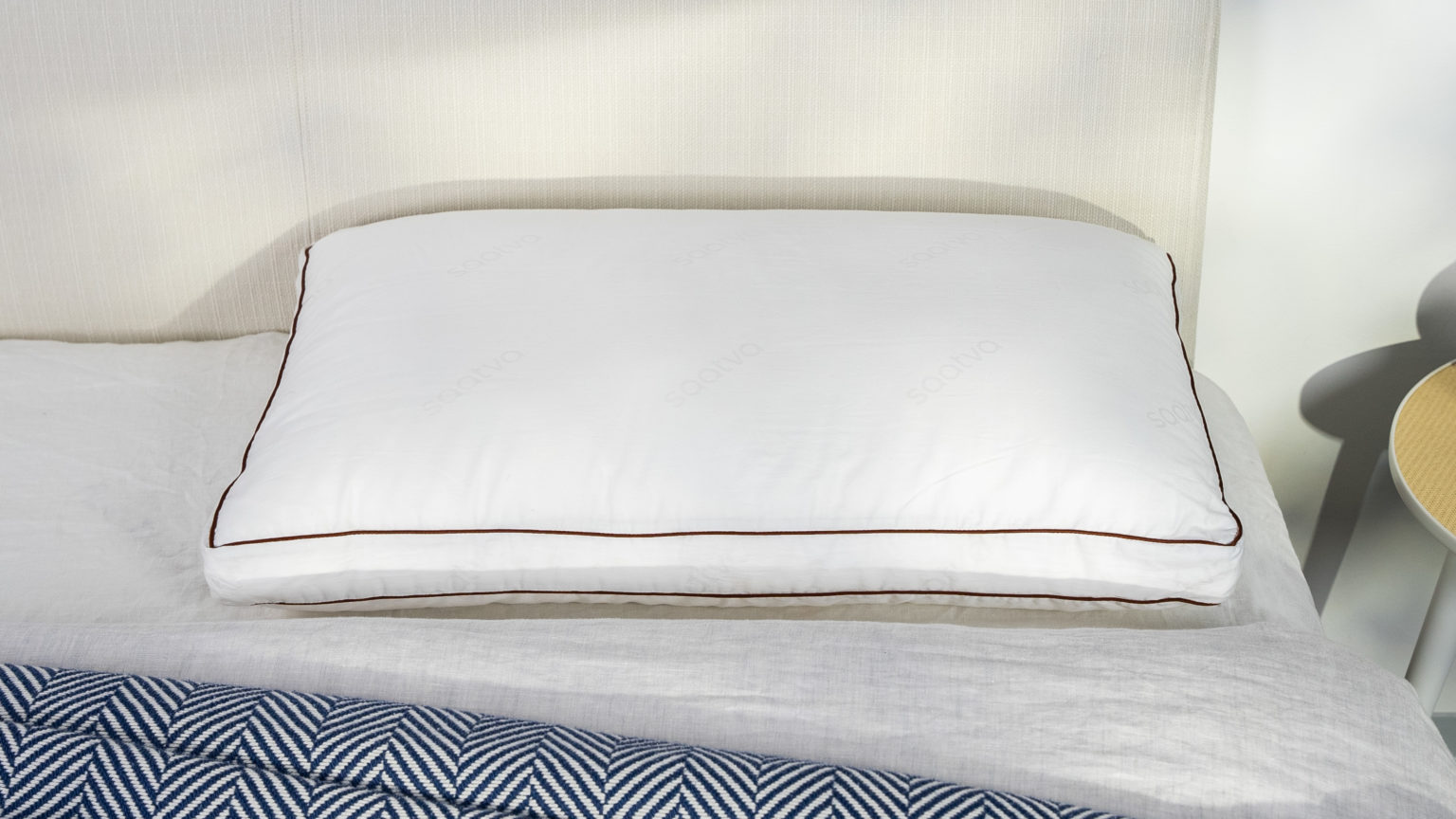

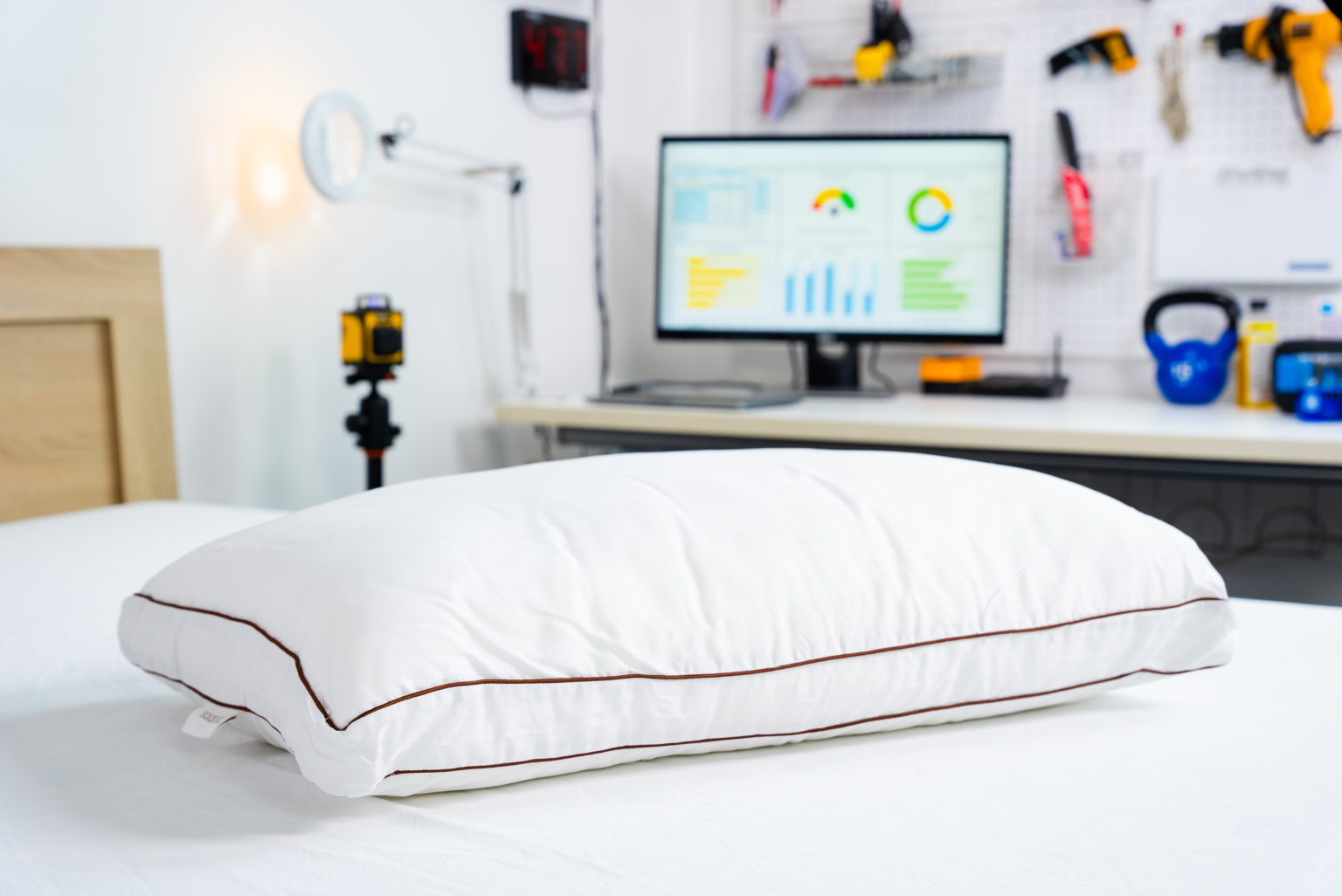
Price Range
$165 – $185
Fill
Shredded Talalay latex and down alternative
Firmness
Medium Soft
Our Verdict
Who it’s best for: The high-loft Saatva Latex Pillow measures roughly 7 inches thick when fully assembled, ensuring plenty of loft for side sleepers. However, you can remove the insert and reduce the profile if you’re a combination sleeper who sometimes sleeps on your back. Breathable materials also make the pillow a solid option for hot sleepers.
Feel: The pillow feels quite firm with the insert in place and provides ample cushioning to fill the space between your head and downward-facing shoulder. With the insert removed, the pillow feels a bit plusher.
What it’s made of: The pillow’s core contains shredded latex, which offers some cushioning without the “hug” of memory foam and won’t trap too much heat as a result. An outer chamber with down alternative clusters adds to the plush feel, and the outer shell is composed of breathable organic cotton.
What we don’t like: The pillow is fairly expensive compared to the competition. You may also need a lower-profile pillow if you’re a combination sleeper who switches between the side and stomach positions.
Best Mattress for Back Sleepers
Luxury Firm WinkBed
9.0 /10
Test Lab Score
Get $300 off all mattresses at Winkbeds
Get $300 off all mattresses at Winkbeds
The Luxury Firm WinkBed balances gentle foam layers and strong, multi-zone coils to deliver a balanced surface for back sleepers.
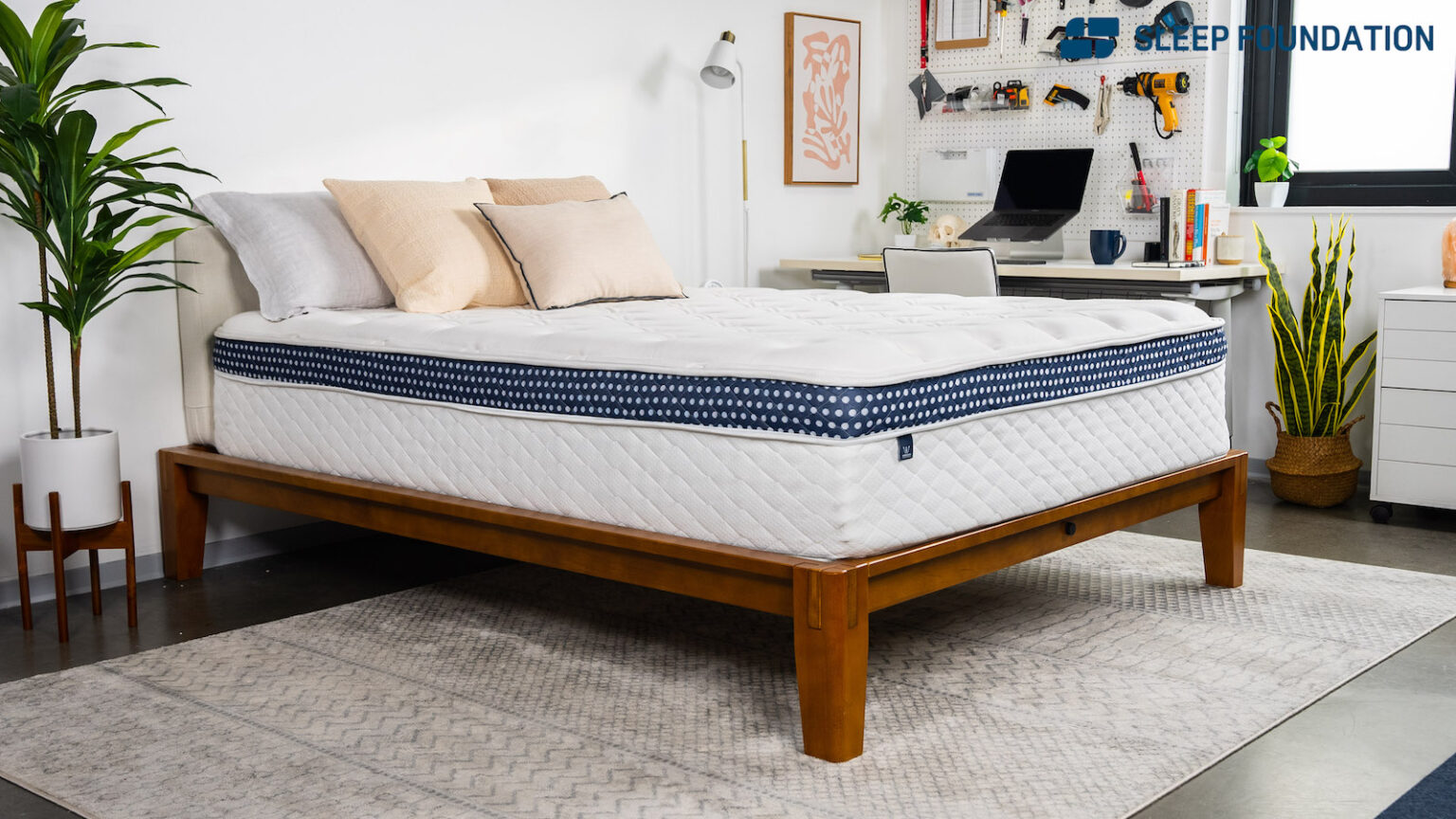
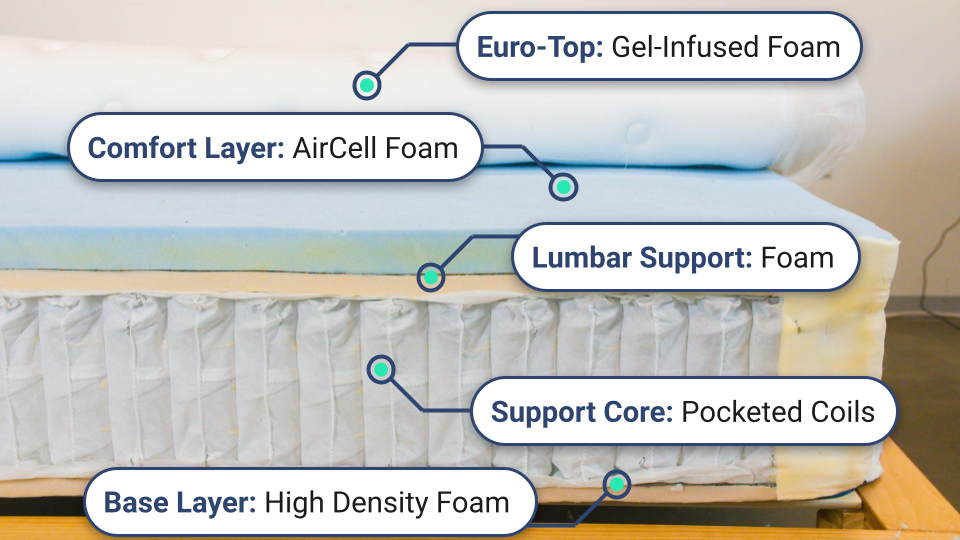
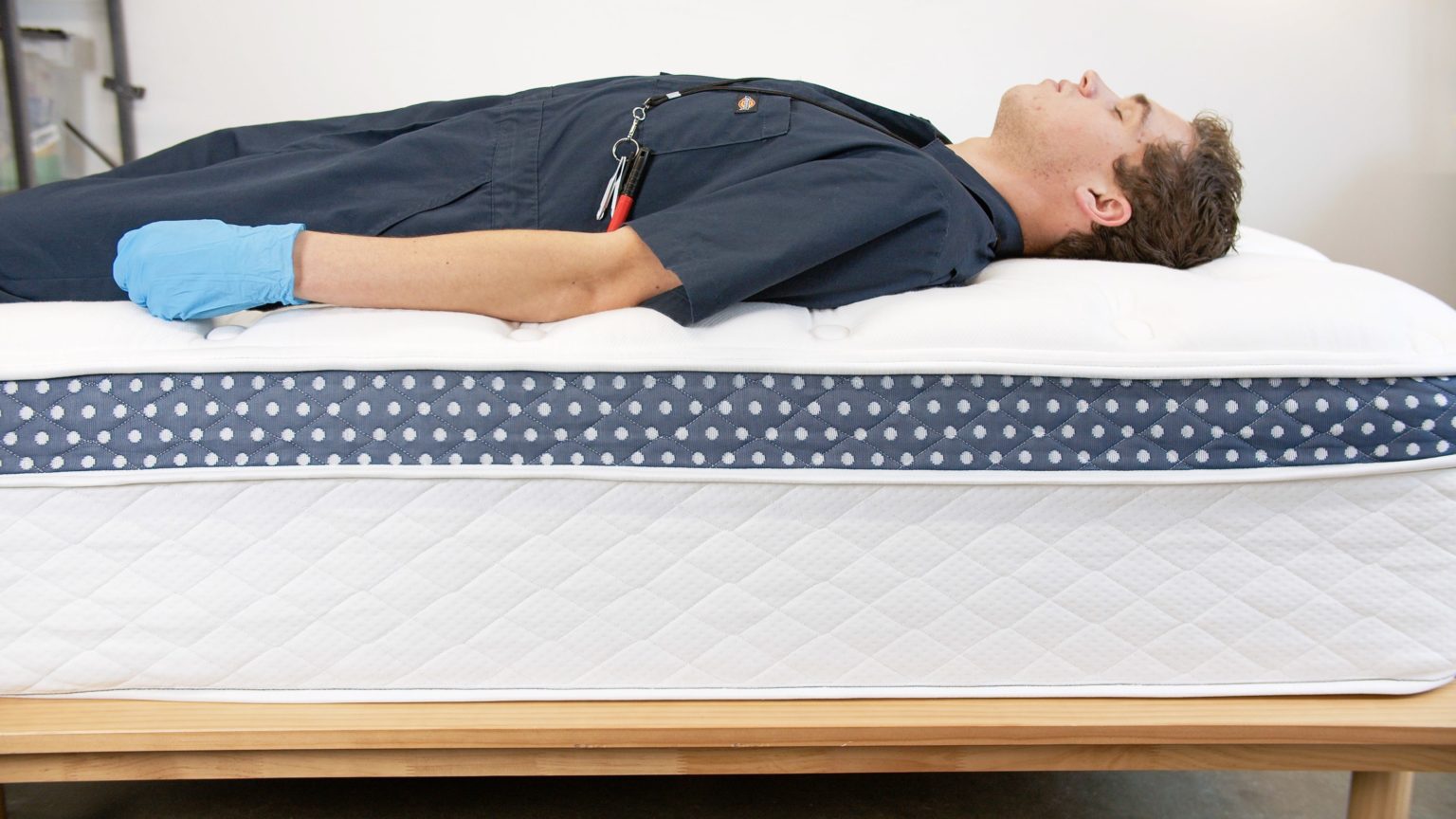
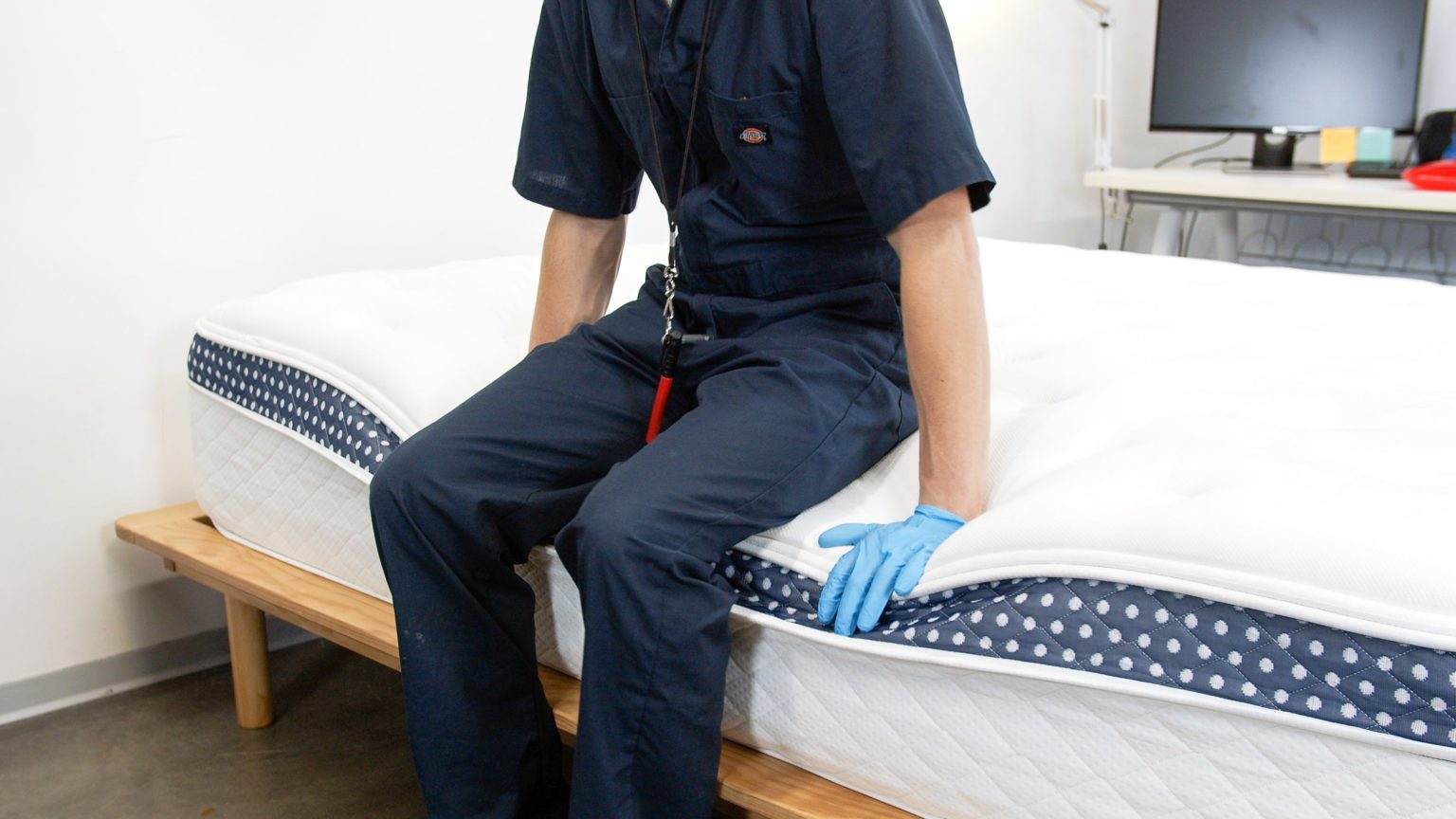
Price
$1,499
Mattress Type
Innerspring
Firmness Options
Medium Firm (6)
Trial Period
120 nights (30 night requirement)
Our Verdict
Who it’s best for: The Luxury Firm WinkBed offers a balanced, medium firm (6) design with ample cushioning for your sore spots and robust support to prevent excessive sinkage. The perimeter feels sturdy, heat retention is minimal, and our tests show most back sleepers won’t feel too much pressure buildup.
Feel: As a medium firm mattress, the Luxury Firm WinkBed conforms to a moderate extent. Adaptive polyfoam gently molds to your figure, but won’t hug you in the same way memory foam does. You can also feel extra pushback around your midsection from the zoned coils.
What it’s made of: The Luxury Firm WinkBed contains two polyfoam comfort layers, followed by multi-zone pocketed coils and dense base foam. A breathable Tencel cover encases the mattress.
What we don’t like: While our testers found the Luxury Firm WinkBed to be a good fit for back sleepers between 130 and 230 pounds, other WinkBed models may be better suited to people in different weight groups. The Softer WinkBed is a good match for back sleepers under 130 pounds, while the Firmer WinkBed or WinkBed Plus should provide the support needed for back sleepers over 230 pounds.
Scoring & Reviews
The following ratings show how suitable this mattress is for different sleeping positions and sleeper weights. These scores are determined by how well the mattress supports and relieves pressure for each sleeper type.
We performed a meta-analysis on 8573 validated customer reviews of the Winkbed. This is what people who bought the mattress had to say:- Quality of Materials: The mattress is frequently described as well-made, with durable materials that contribute to a good night’s sleep.
- Cooling Features: Some reviewers mention that the mattress does a good job of regulating temperature, providing a cooler sleep experience.
- Edge Support: While generally satisfied with the support, a few reviewers note that edge support could be better.
- Comfort and Support: Many reviewers praise the mattress for its comfort and support, often mentioning relief from back pain and improved sleep quality.
- Firmness Options: Customers appreciate the variety of firmness options available, finding the right balance for their personal preferences.
- Value for Money: Many users feel the mattress is worth the investment, offering good value for the quality and comfort provided.
- Made in the USA: Buyers are pleased that the mattresses are made in the USA, supporting domestic manufacturing.
Best Pillow for Back Sleepers
Brooklinen Down Pillow
9.2 /10
Test Lab Score
15% off sitewide
15% off sitewide
The Brooklinen Down Pillow features a chambered design that delivers comfy plushness for your head and neck, along with a stable and supportive base.
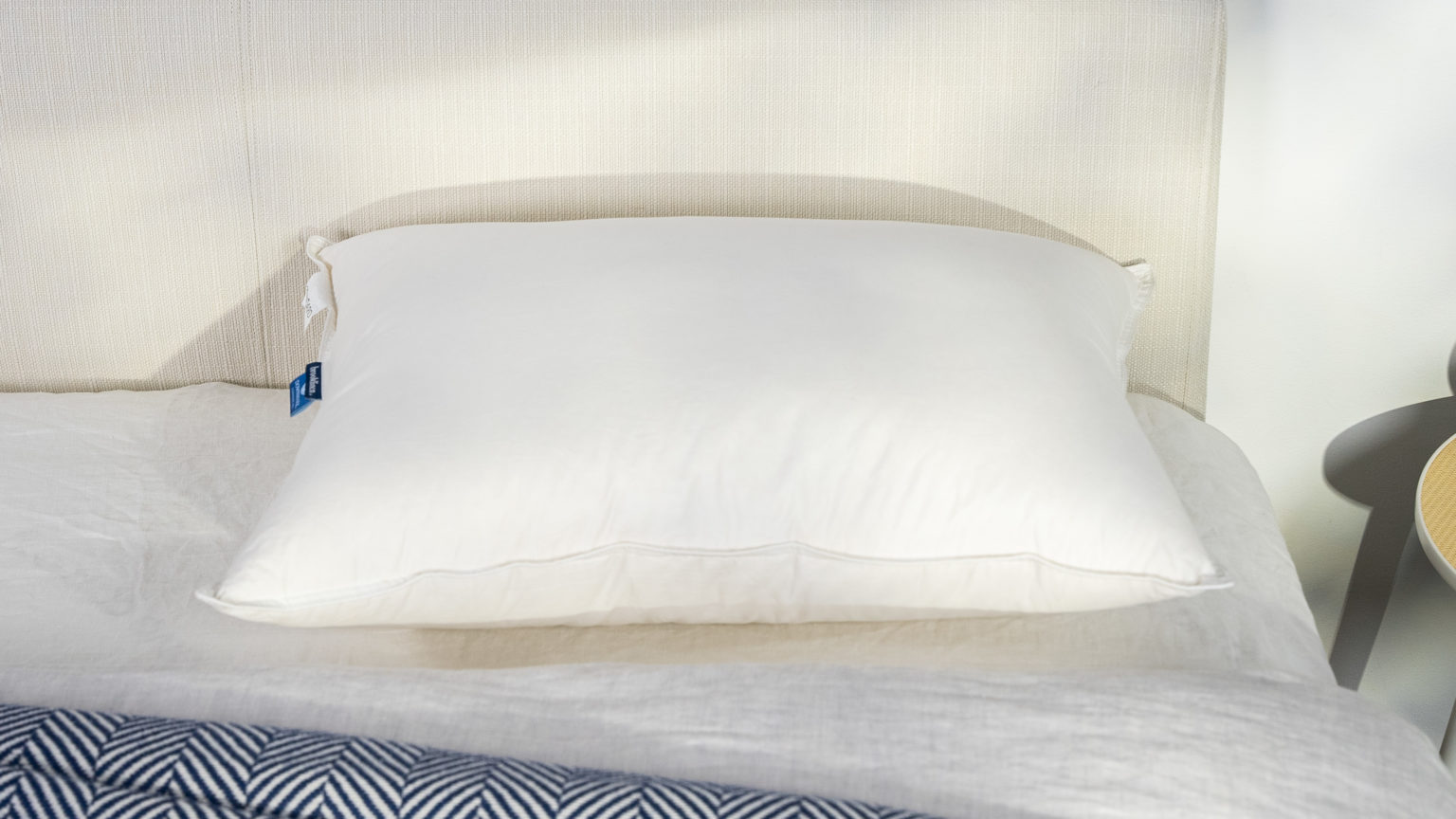
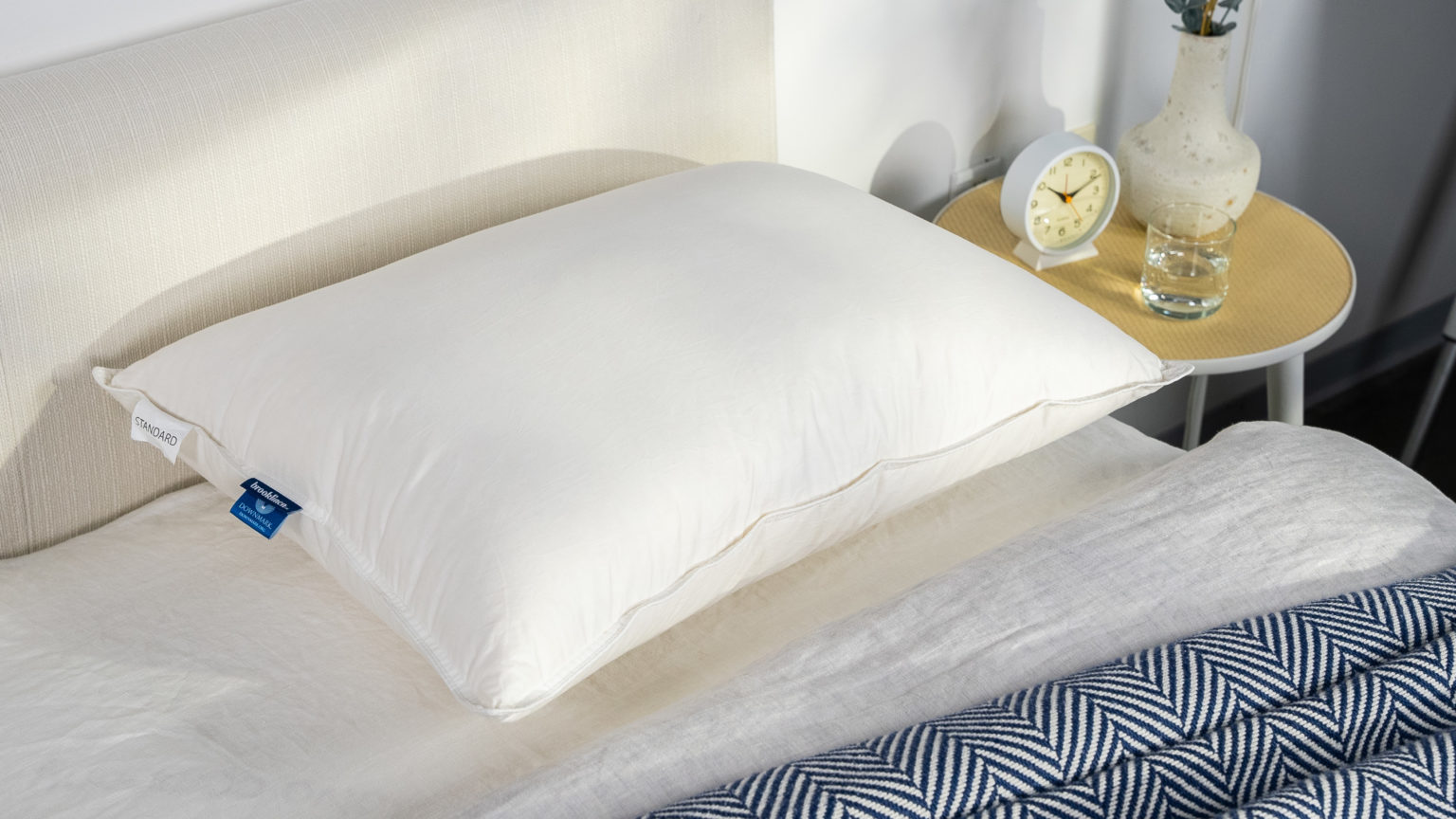
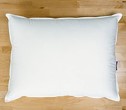
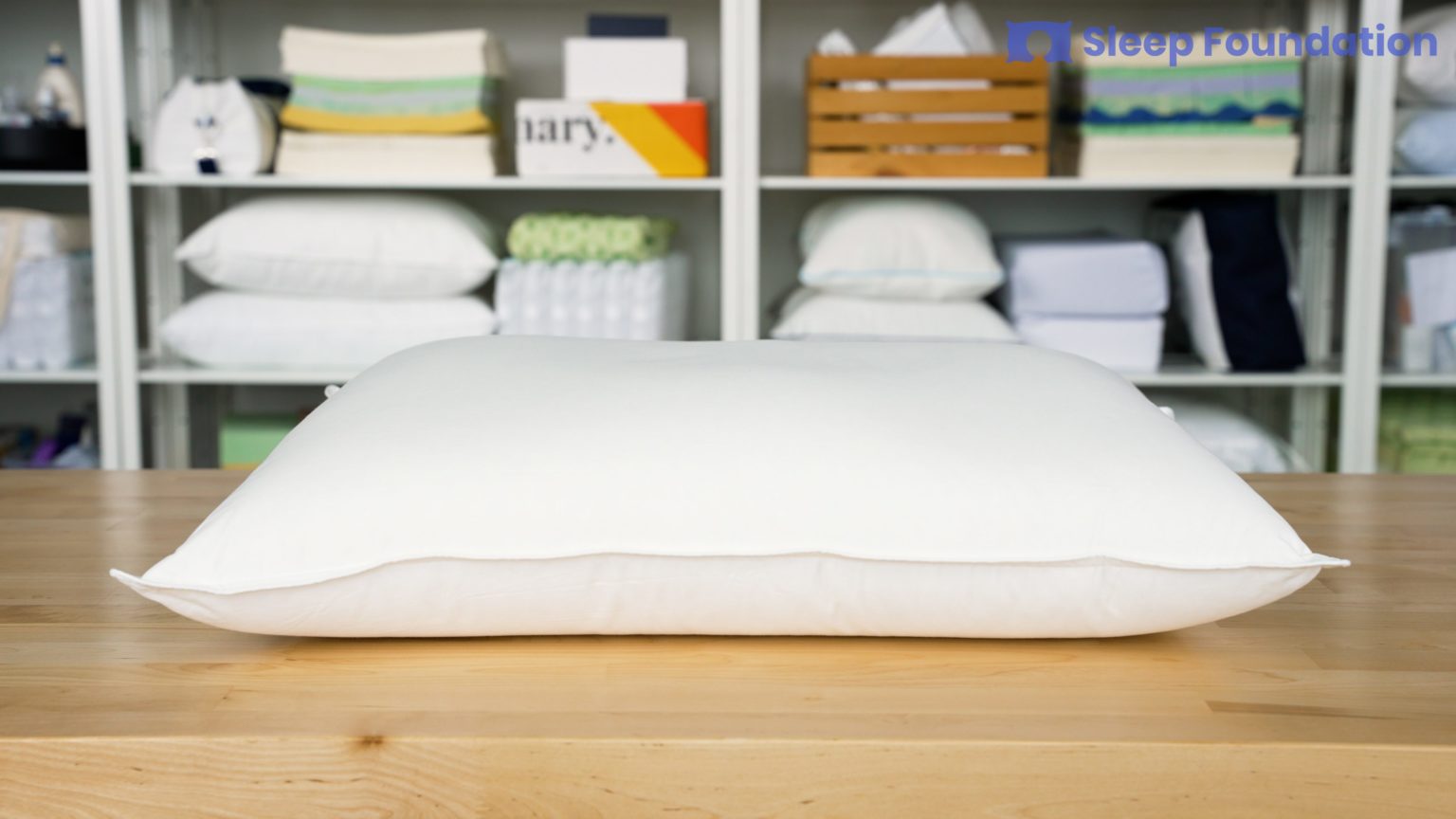
Price Range
$109 – $149
Fill
Canadian white down clusters or down/feather blend
Firmness
Plush, Mid-Plush, Firm
Our Verdict
Who it’s best for: The Brooklinen Down Pillow is crafted with plush down clusters encased in a breathable cotton shell. You can choose from three densities, and our tests show the medium density/loft is best suited to back sleeping due to its mid-range profile and balanced feel.
Feel: The pillow’s feel depends on which density you choose. The firm density produces an exceptionally supportive feel, the mid-plush density offers moderate support, and the plush density is quite plush.
What it’s made of: Construction also varies by density. The firm and mid-plush pillows are chambered with down clusters on the surface and feathers at the base to provide support. The plush pillow’s fill consists entirely of down, resulting in extra softness.
What we don’t like: You’ll need to fluff the pillow on a regular basis to maintain a full shape. Care can also be a hassle because the pillow should only be spot-cleaned or dry-cleaned, and never machine-washed.
Best Mattress for Stomach Sleepers
Saatva Classic – Firm
8.9 /10
Test Lab Score
Up to $500 off mattress purchases
Up to $500 off mattress purchases
Supportive and responsive, the Saatva Classic – Firm is exceptionally robust and well-matched for stomach sleepers — even those who weigh more than 230 pounds.
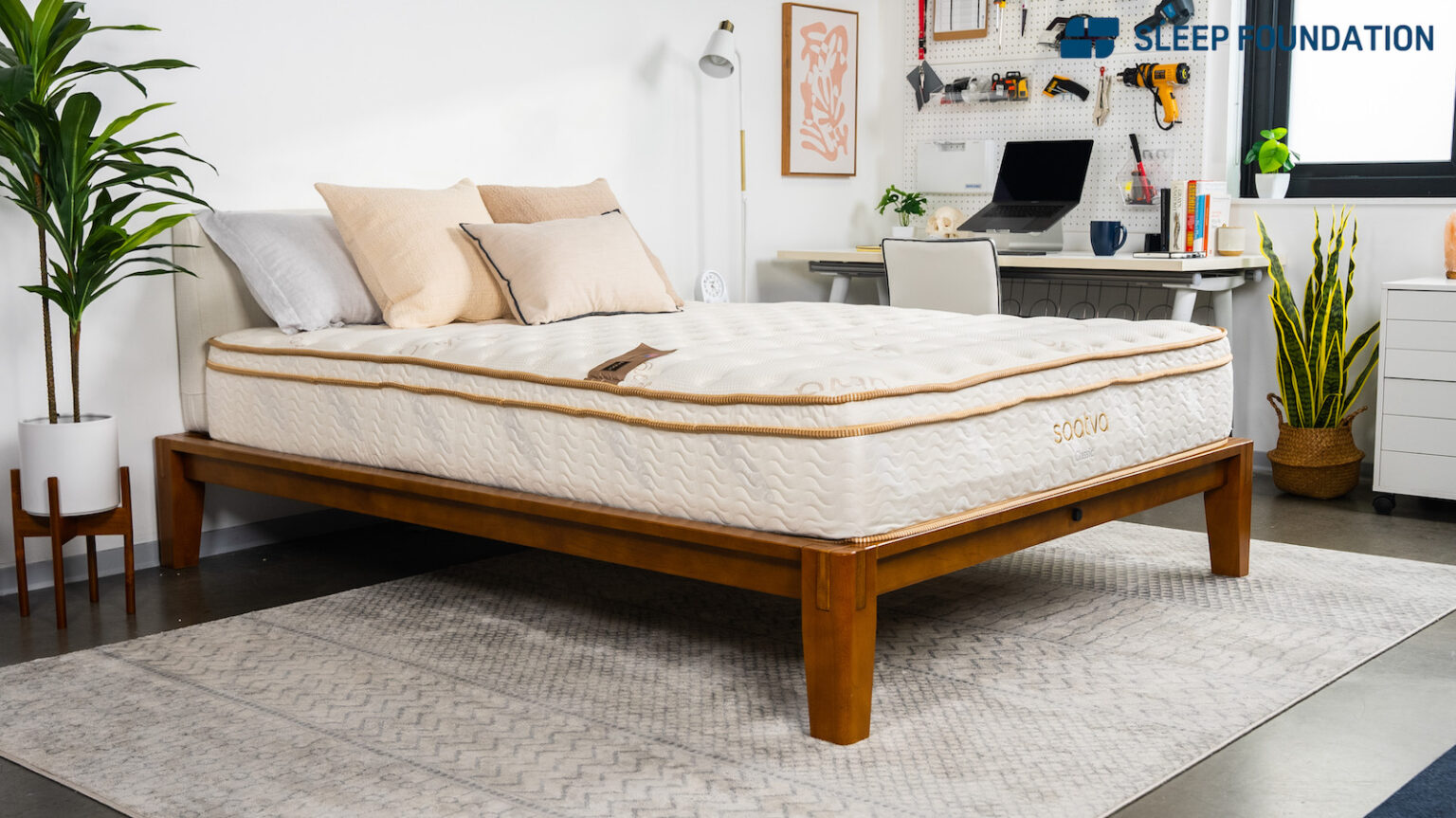
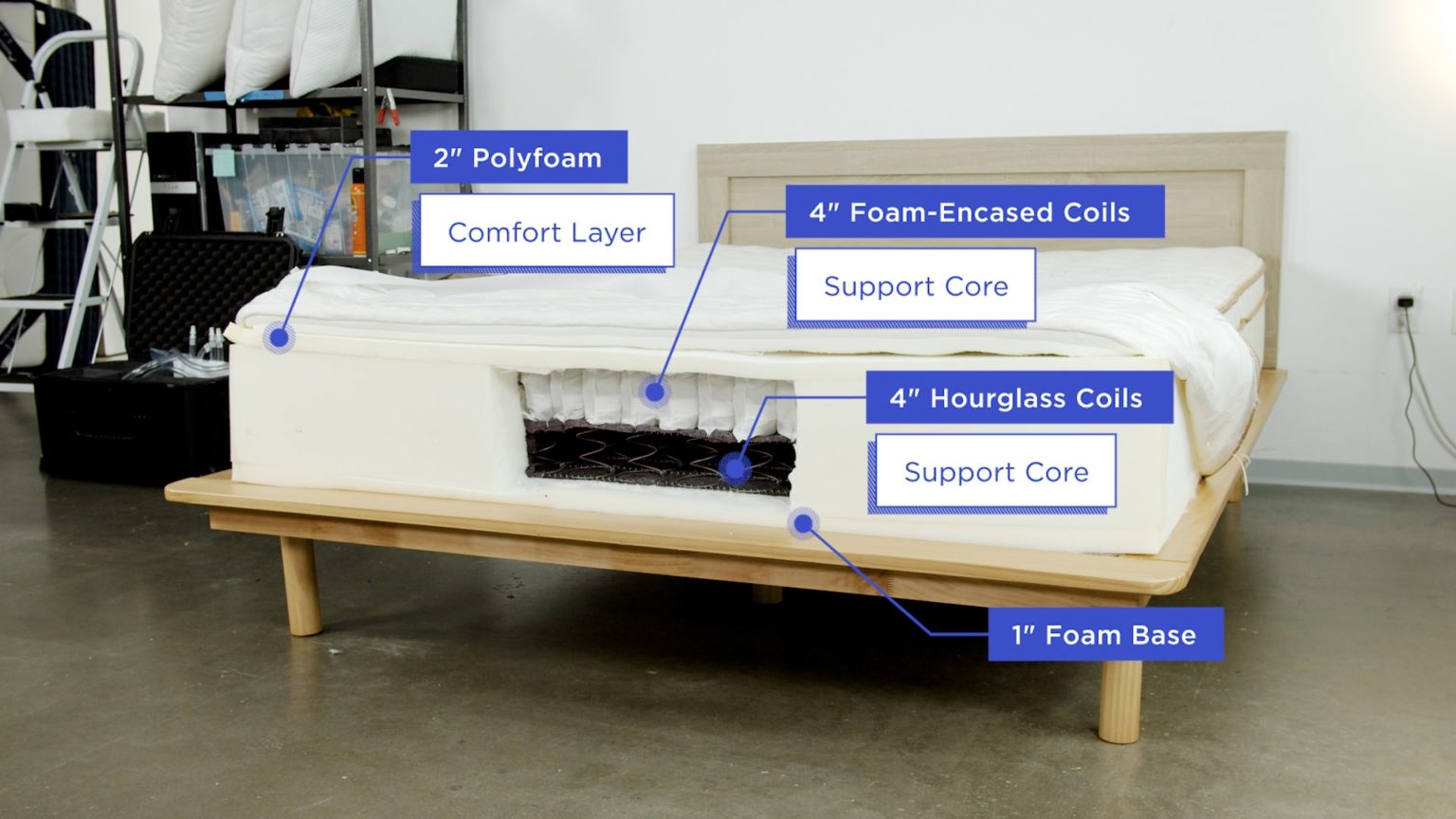
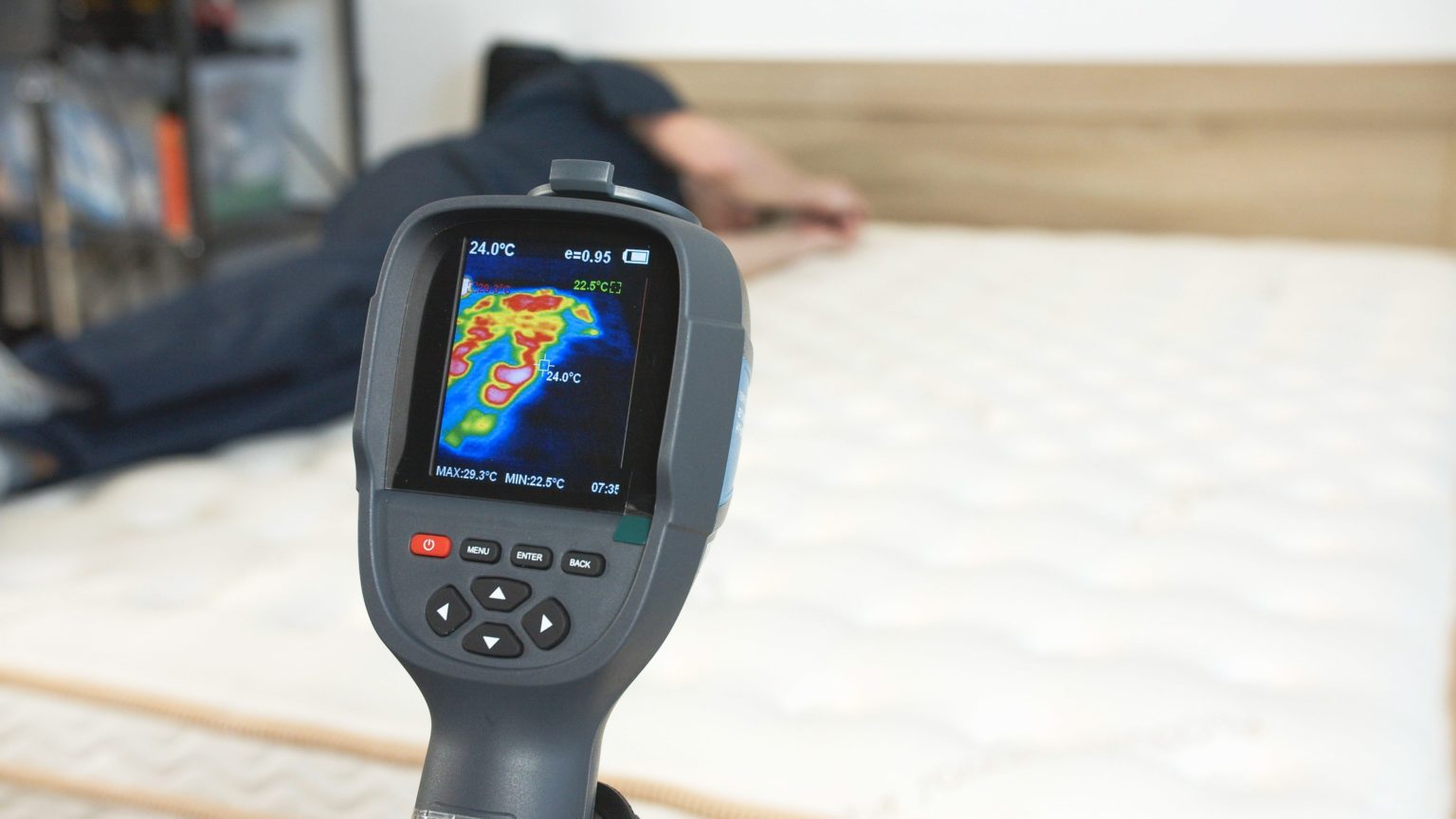
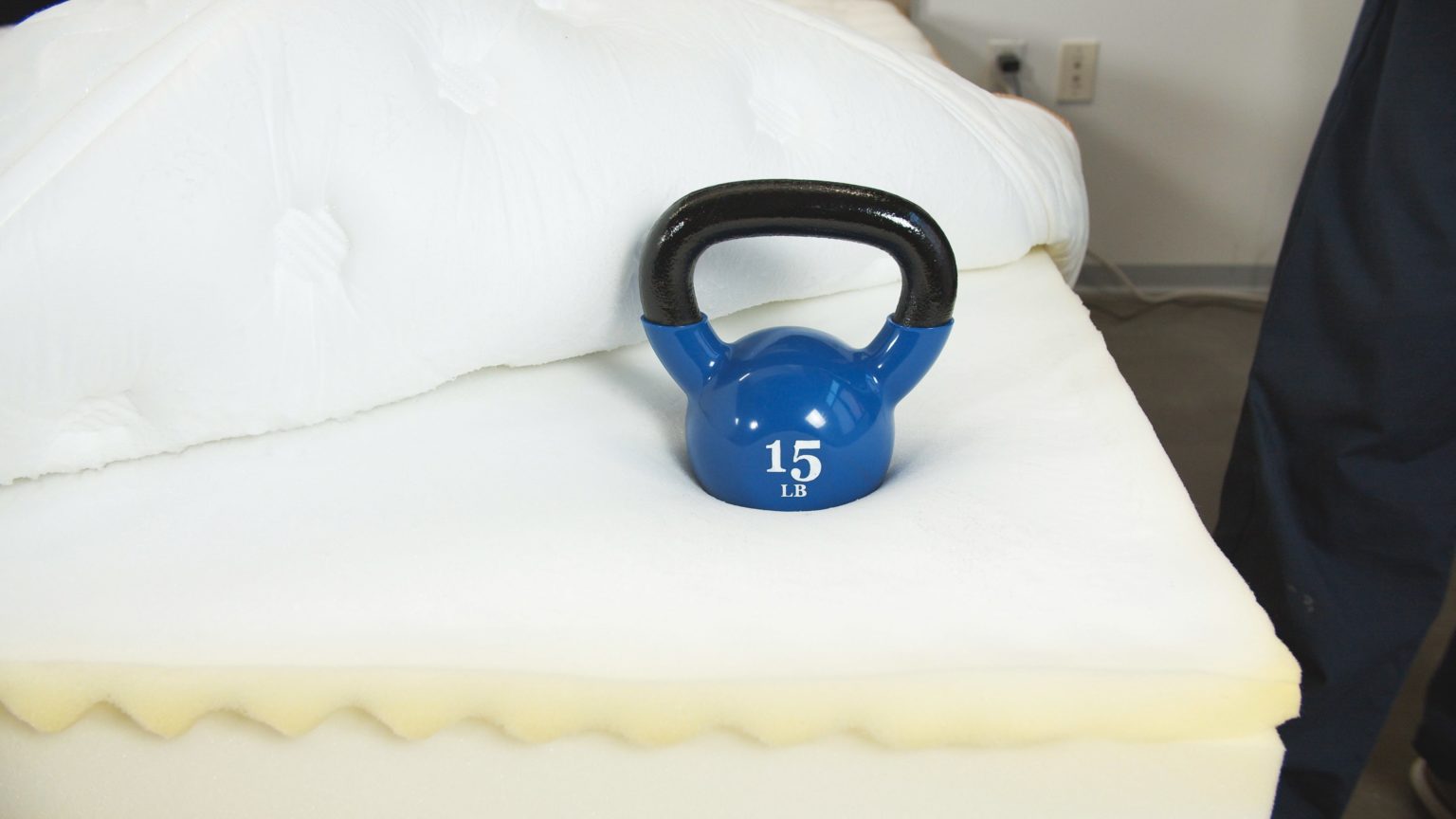
Price
$1,795
Mattress Type
Innerspring
Firmness Options
Firm (8)
Trial Period
365 Nights ($99 Return Fee)
Our Verdict
Who it’s best for: The Saatva Classic is available in three firmness levels, including a firm (8) design that barely conforms to your body and pushes back against your weight. Our testing team found this model is the most comfortable and supportive option for stomach sleepers.
Feel: Innerspring construction makes the Saatva Classic feel very supportive and bouncy. The foam layers offer a bit of plushness on the surface, but the mattress won’t contour to your body very closely. The coils are zoned to create extra pushback beneath your torso and hips.
What it’s made of: The Saatva Classic’s comfort system includes a thin strip of polyfoam quilted to the bottom of the cover and a dense memory foam pad located beneath your lower back. Pocketed minicoils provide transitional support, while the support core contains strong steel coils. An organic cotton cover encases the mattress.
What we don’t like: The Saatva Classic’s coil-on-coil design produces a strong bounce in response to your movements in bed. As a result, motion isolation is limited for couples.
Scoring & Reviews
The following ratings show how suitable this mattress is for different sleeping positions and sleeper weights. These scores are determined by how well the mattress supports and relieves pressure for each sleeper type.
We performed a meta-analysis on 3308 validated customer reviews of the Saatva Classic. This is what people who bought the mattress had to say:- Delivery Service: Positive feedback on the delivery process is common, with customers highlighting the professionalism and efficiency of the delivery teams. The white glove delivery service, including old mattress removal, is frequently praised.
- Comfort and Support: Reviewers frequently cite the comfort and support of the Saatva Classic mattress, noting improvements in sleep quality and reductions in back pain. The availability of different firmness options caters to various preferences and needs.
- Durability: Long-term users report that the mattress maintains its comfort and support over the years, indicating good durability and quality construction.
- Material Quality: Customers appreciate the safe and high-quality materials used in the mattress, such as the absence of harmful chemicals and the use of organic cotton.
- Temperature Regulation: Some reviewers specifically mention sleeping cooler on the Saatva Classic, highlighting its temperature regulation features that contribute to a more comfortable sleep.
- Adjustability and Customization: The ability to customize the mattress for personal needs, like the split king option with different firmness levels, is a significant plus for many customers.
Best Pillow for Stomach Sleepers
Brooklyn Bedding Talalay Latex Pillow – Low
9.0 /10
Test Lab Score
Use this link for the most current Brooklyn Bedding discounts
Use this link for the most current Brooklyn Bedding discounts
Thanks to its low loft and responsive, solid latex fill, the Brooklyn Bedding Talalay Latex Pillow delivers comfy cushioning for stomach sleepers without elevating the head and neck too much.
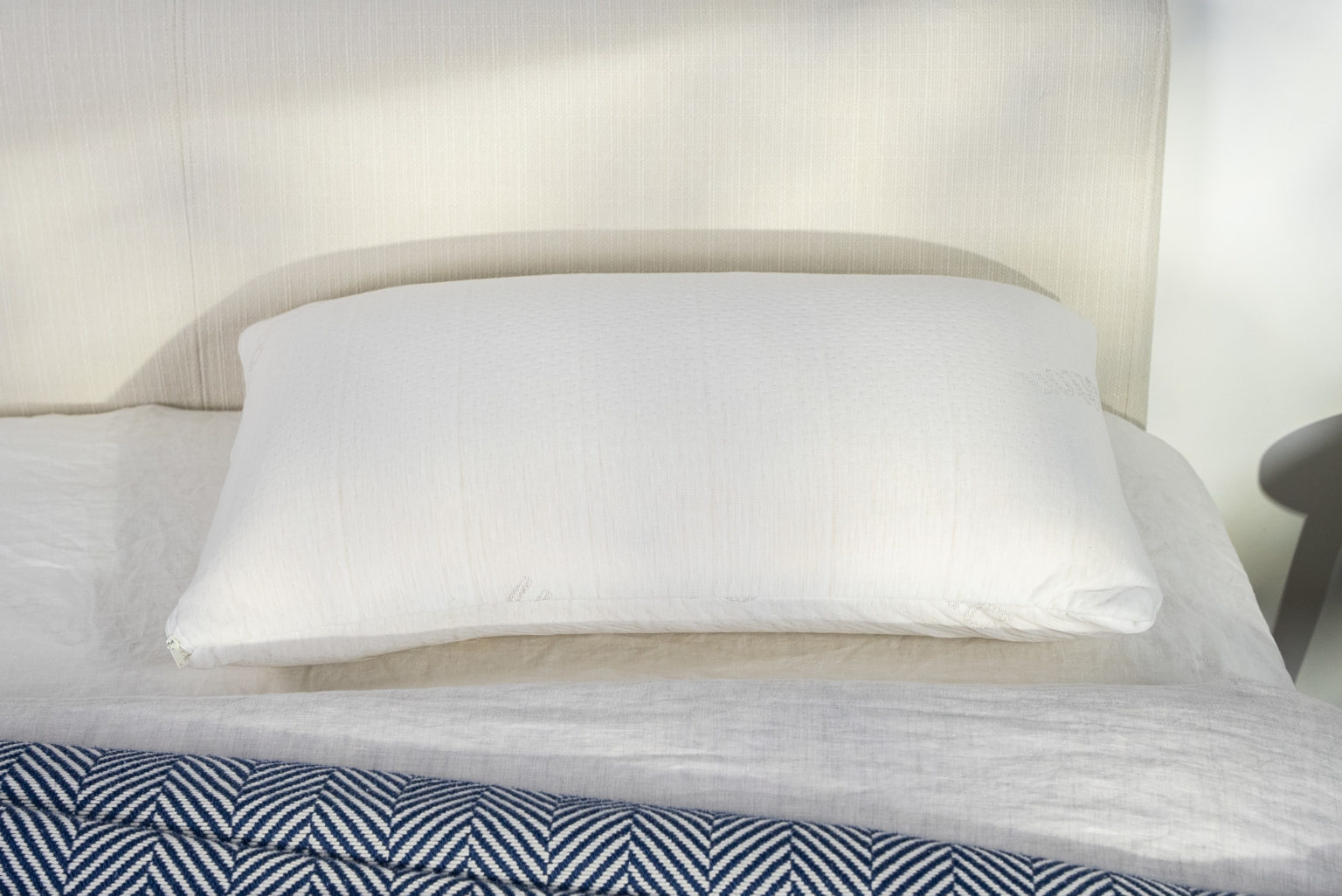
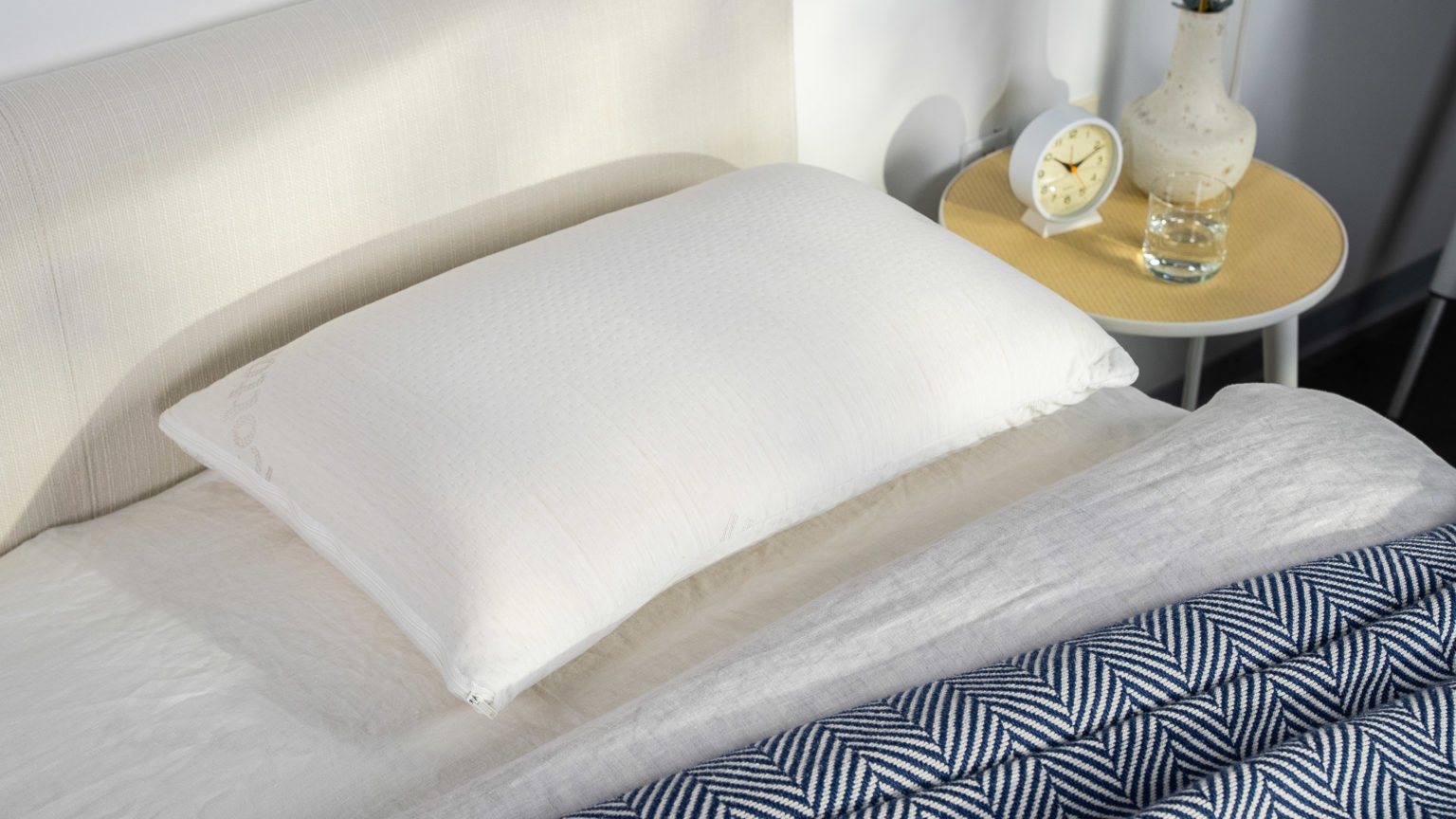
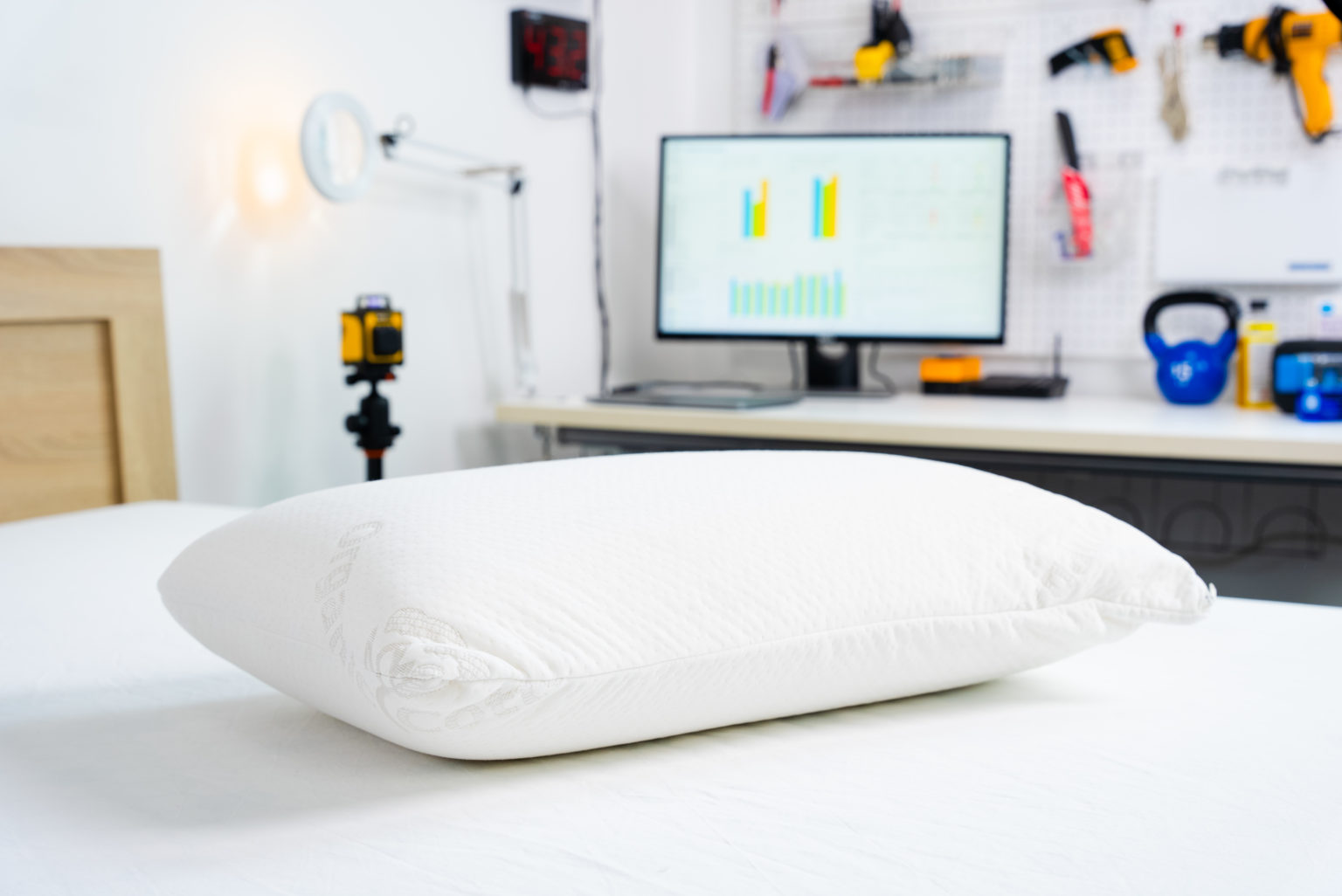
Price Range
$89 – $99
Fill
Talalay latex
Firmness
Medium Firm
Our Verdict
Who it’s best for: Stomach sleepers on our testing team awarded favorable ratings to the Talalay Latex Pillow’s low-profile design. The latex fill is cushy without sinking or lifting the head too much, and the limited loft should help prevent neck pain.
Feel: Solid Talalay latex is naturally responsive, so this pillow resists sinkage very well. The latex is also ventilated to promote airflow and keep you cool.
What it’s made of: The pillow’s core contains a single piece of aerated Talalay latex measuring roughly 5.75 inches thick. A cover made of moisture-wicking Tencel fabric encases the fill.
What we don’t like: While the low-loft pillow is a good match for those who exclusively sleep on their stomach, combination sleepers who switch between their stomach and other positions may need a pillow with more loft.
Side Sleeping
Studies suggest that a majority of adults sleep on their side. Side sleeping may lower the risk of pain in the spine and neck and may provide other benefits like reduced snoring and acid reflux.
How to Sleep on Your Side with Neck Pain
To help prevent stiffness in the neck muscles, side sleepers should keep their head and neck aligned with the rest of their body. This alignment can prevent excess weight from being placed on the neck and causing discomfort.
To achieve proper alignment, side sleepers can choose pillows that keep the head in a neutral position. For some side sleepers, a larger pillow or stack of pillows can prevent the head from sinking too far toward the mattress and triggering neck pain. However, side sleepers may want to avoid pillows or stacks of pillows that are too thick. Excessive pillows can elevate the head and neck too much, which can also lead to neck pain.
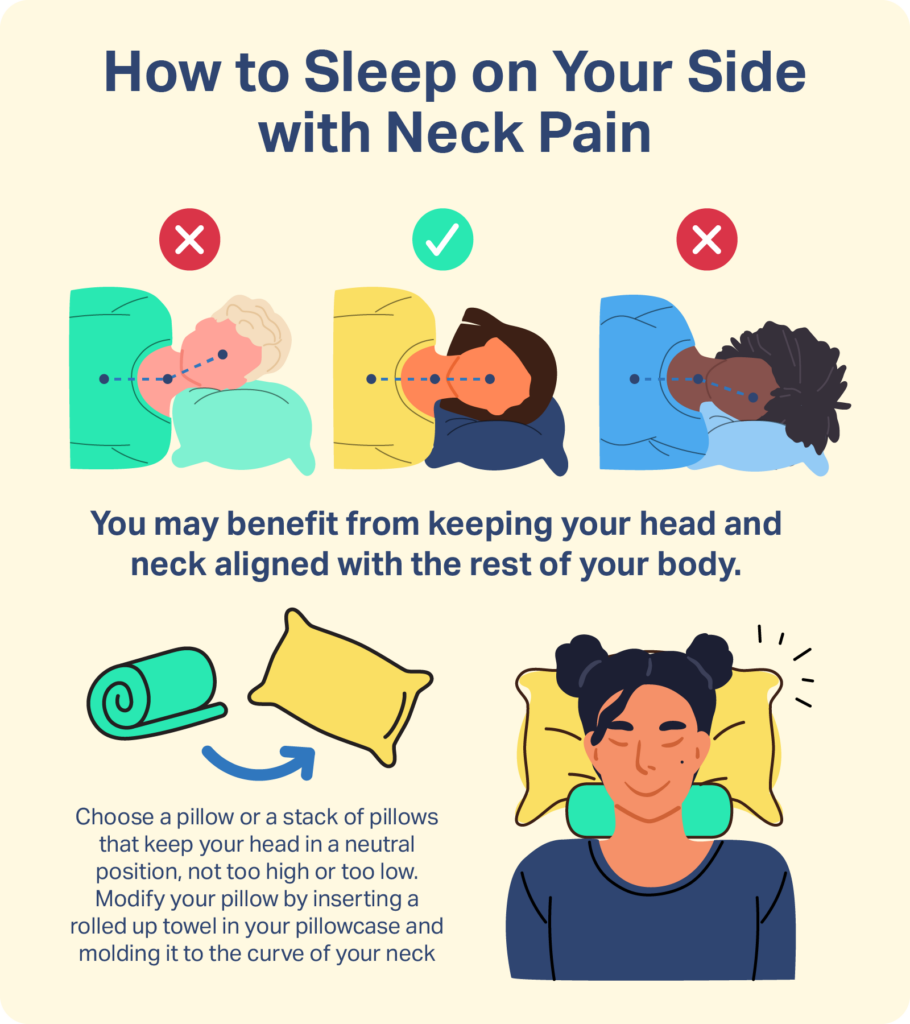
Side sleepers can also modify their current pillows for support. One strategy is to roll up a hand towel and insert it along the long edge of the pillowcase. The shape of a rolled towel can be changed to fit the natural curve of the neck and fill the space between the side of the face and the shoulder.
After arranging pillows for support, side sleepers can test to see if the combination aligns the head and neck with the rest of the body. One way to check for proper alignment is to take a picture of the sleeper lying on their pillows, then determine if their neck is in line or if the pillows need further adjustment.
Back Sleeping
Back sleeping is the second most common sleep position among adults and is often recommended for people with spinal pain. Back sleeping with proper head and neck alignment may help decrease pain in the neck.
How to Sleep on Your Back with Neck Pain
Back sleepers may find relief from neck pain by adjusting their position with a few pillows. A small pillow at the base of the neck can keep the head in a neutral position, while placing a pillow beneath the knees or thighs can keep the muscles along the spine flat and relax muscles in the neck.
Another consideration for back sleepers is the placement of their hands during sleep. Research suggests that certain hand positions can activate muscles in the upper back and neck, causing the body to rotate and move the spine out of proper alignment. Back sleeping with the hands to the side or on the chest may reduce neck and back pain.
Worst Sleeping Position for Neck Pain
Stomach sleeping with the head facing one side is not recommended for relieving neck pain. Sleeping on the stomach may increase weight on the neck and limit recovery from pain. Compared to side and back sleepers, stomach sleepers report the greatest amount of neck pain during the day.
Stomach sleepers may be able to train themselves to sleep on their back or side to reduce neck pain. One way to change a habitual sleep position is to place pillows around the body to prevent turning onto the stomach until the new sleep position is established.
Causes of Neck Pain During Sleep
Common sleep habits and daytime activities can strain or cause tension in the neck muscles and lead to neck pain.
- Poor support: Insufficient support during sleep can trigger pain in the neck and other areas of the spine.
- Sleep position: Some sleep positions, such as stomach sleeping, can cause neck pain.
- Poor posture: Looking up or down at a computer screen, sitting too long in one position, and carrying heavy bags or purses can all affect the neck and upper back muscles.
- Stress: Tension in the neck can arise from psychological stress. Stress can also slow down recovery from pain.

Tips for Sleeping with Neck Pain
In addition to adjusting their sleep position for better alignment, sleepers with neck pain can make small changes to their sleep spaces and incorporate new steps into their daytime routines.
Replace Old Mattresses or Pillows
For some people with neck pain, a firmer mattress can help support the neck during sleep. Special neck pillows can also provide additional support.
Apply Heat and Cold
Some people with neck pain find relief by applying heat or cold to the painful area before bedtime. Experts recommend using this approach for a maximum of 15 minutes each session. To protect the skin, use a heating pad on a low setting or an ice pack wrapped in a towel. People should be sure to stay awake when using heat or cold to avoid potential injury.
Modify Posture
Daytime posture, such as hunching over a desk, can contribute to neck pain and tension. Small adjustments, such as sitting up straight with the chin tilted down as little as possible, can help train the body to adopt a more neutral posture.
Exercise and Stretch
Neck stretches and rotations, shoulder rolls, and other gentle exercises can help relieve neck pain and prevent the pain from recurring. If possible, these movements can be performed daily. A physical therapist or other health care provider can recommend targeted exercises to meet an individual’s needs.
Reduce Stress
Meditation and mindful breathing techniques may relieve stress and prevent tension in the neck. Gentle forms of exercise such as yoga and tai chi can also help with relaxation. Some people may find it helpful to consult a psychologist or other mental health professional who teaches strategies for managing stress and pain.
Consider Pain Relievers
Both non-steroidal anti-inflammatory drugs (NSAIDs) and acetaminophen are often recommended by health care professionals for treating neck pain. However, like all drugs, these medications have risks, so it may help to speak with your doctor about pain-relieving medication. Your doctor can also help you explore prescription medications if over-the-counter drugs do not provide enough pain relief.
Wear a Neck Brace
A soft brace worn around the neck can relieve pain and keep the neck from moving. Neck braces can be worn occasionally while sleeping if the neck pain disrupts sleep. However, use of neck braces during the day should be limited to three hours for no more than two weeks to avoid delaying recovery.
When to Talk to Your Doctor About Neck Pain
Neck pain is a common problem with possible causes . In most cases, people with neck pain recover after limited treatment. However, you should inform your health care provider as soon as possible if you experience any of the following symptoms along with neck pain:
- Fever
- Headache
- Weakness in the legs
- Unexpected weight loss
- Sweating
- Shortness of breath
- Nausea
- Pain in the arm or jaw
- Neck stiffness and immobility

Still have questions? Ask our community!
Join our Sleep Care Community — a trusted hub of sleep health professionals, product specialists, and people just like you. Whether you need expert sleep advice for your insomnia or you’re searching for the perfect mattress, we’ve got you covered. Get personalized guidance from the experts who know sleep best.
References
14 Sources
-
Lubit, R. H., & Bonds, C. L. (2019, August 21). Sleep-wake disorders. Medscape.
https://emedicine.medscape.com/article/287104-overview -
Isaac, Z. (2021, November 16). Management of non-radicular neck pain in adults. In S.J. Atlas (Ed.). UpToDate.
https://www.uptodate.com/contents/management-of-non-radicular-neck-pain-in-adults -
Cary, D., Jacques, A., & Briffa, K. (2021). Examining relationships between sleep posture, waking spinal symptoms and quality of sleep: A cross sectional study. PLoS One, 16(11), e0260582.
https://pubmed.ncbi.nlm.nih.gov/34847195/ -
Maski, K. (2021, February 19). Insufficient sleep: Evaluation and management. In T. E. Scammell (Ed.). UpToDate., Retrieved April 20, 2022, from
https://www.uptodate.com/contents/insufficient-sleep-evaluation-and-management -
Consensus Conference Panel, Watson, N. F., Badr, M. S., Belenky, G., Bliwise, D. L., Buxton, O. M., Buysse, D., Dinges, D. F., Gangwisch, J., Grandner, M. A., Kushida, C., Malhotra, R. K., Martin, J. L., Patel, S. R., Quan, S. F., Tasali, E., Non-Participating Observers, Twery, M., Croft, J. B., Maher, E., … Heald, J. L. (2015). Recommended amount of sleep for a healthy adult: A joint consensus statement of the American Academy of Sleep Medicine and Sleep Research Society. Journal of Clinical Sleep Medicine, 11(6), 591–592.
https://pubmed.ncbi.nlm.nih.gov/25979105/ -
Skarpsno, E. S., Mork, P. J., Nilsen, T. I. L., & Holtermann, A. (2017). Sleep positions and nocturnal body movements based on free-living accelerometer recordings: Association with demographics, lifestyle, and insomnia symptoms. Nature and Science of Sleep, 9, 267–275.
https://pubmed.ncbi.nlm.nih.gov/29138608/ -
Cary, D., Briffa, K., & McKenna, L. (2019). Identifying relationships between sleep posture and non-specific spinal symptoms in adults: A scoping review. BMJ Open, 9(6), e027633.
https://pubmed.ncbi.nlm.nih.gov/31256029/ -
Ravesloot, M. J., van Maanen, J. P., Dun, L., & de Vries, N. (2013). The undervalued potential of positional therapy in position-dependent snoring and obstructive sleep apnea: A review of the literature. Sleep & breathing, 17(1), 39–49.
https://pubmed.ncbi.nlm.nih.gov/22441662/ -
Khoury, R. M., Camacho-Lobato, L., Katz, P. O., Mohiuddin, M. A., & Castell, D. O. (1999). Influence of spontaneous sleep positions on nighttime recumbent reflux in patients with gastroesophageal reflux disease. The American journal of gastroenterology, 94(8), 2069–2073.
https://pubmed.ncbi.nlm.nih.gov/10445529/ -
Lee, W. H., & Ko, M. S. (2017). Effect of sleep posture on neck muscle activity. Journal of Physical Therapy Science, 29(6), 1021–1024.
https://pubmed.ncbi.nlm.nih.gov/28626314/ -
Isaac, Z., & Dec, K. L. (2020, September 3). Patient education: Neck pain (Beyond the basics). In J. G. Elmore (Ed.). UpToDate.
https://www.uptodate.com/contents/neck-pain-beyond-the-basics -
A.D.A.M. Medical Encyclopedia. (2022, April 1). Neck pain or spasms – self care. MedlinePlus., Retrieved April 20, 2022, from
https://medlineplus.gov/ency/patientinstructions/000802.htm -
Moley, P. J. (2020, November). Neck pain. Merck Manual Consumer Version., Retrieved April 20, 2022, from
https://www.merckmanuals.com/home/bone,-joint,-and-muscle-disorders/low-back-and-neck-pain/neck-pain -
Isaac, Z. & Kelly, H. R. (2021, March 16). Evaluation of the adult patient with neck pain. In S. J. Atlas (Ed.). UpToDate., Retrieved April 20, 2022, from
https://www.uptodate.com/contents/evaluation-of-the-adult-patient-with-neck-pain




